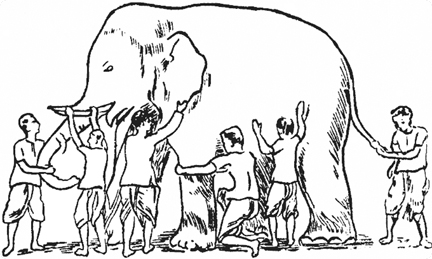I awoke in the night to find my husband, Marty, gently rocking our baby son, Noah.
I
stood for a moment in the doorway, watching this amazing man with whom I
was so blessed to share my life, lovingly stroke Noah’s fat pink cheeks
in an effort to comfort him.
I felt in my heart that something
was seriously wrong with Noah. This was one of several nights Noah had
been up, burning with a high fever.
Tears filled my eyes as I
watched my beautiful husband move Noah’s little cheek up against his own
chest, so that Noah could feel the vibrations of his voice. Noah is
deaf. Learning to comfort him has brought on a whole new way of thinking
for us. We relied on our voices, a soothing lullaby, audio toys, and
music to comfort our other children. But with Noah, we need to use
touch, his soft blankie, sight, the feel of our voices, and most
importantly, the use of sign language to communicate emotions and a
sense of comfort to him. My husband made the sign for “I love you” with
his hand and I saw a tear roll down his cheek as he placed Noah’s tiny,
weak hand on top of his.
We had taken Noah to the doctor more
times than I can remember. It had been a week and a half and Noah’s
fever remained very high and very dangerous, despite everything the
doctor or we had tried. I knew in my soul the way only a mother can
know, that Noah was in trouble.
I gently touched my husband’s
shoulder and we looked into each other’s eyes with the same fear and
knowledge that Noah’s wasn’t getting any better. I offered to take over
for him, but he shook his head, and once again, I was amazed at this
wonderful man who is the father of my children. When many fathers would
have gladly handed over the parenting duties for some much needed sleep,
my husband stayed stubbornly and resolutely with our child.
When
morning finally came, we called the doctor and were told to bring him in
again. We already knew that he would probably put Noah in the hospital.
So, we made arrangements for the other children, packed bags for all
three of us, and tearfully drove to the doctor’s office once again. Our
hearts filled with dread, we waited in a small room, different from the
usual examining room we had become used to. Our doctor finally came in,
looked Noah over, and told us the news we expected. Noah had to be
admitted to the hospital. Now.
The drive to the hospital in a
neighboring town seemed surreal. I couldn’t focus on anything, couldn’t
think, couldn’t stop crying. My husband reassured me that he felt in his
heart that Noah would be okay. We admitted Noah and were taken to his
room right away. It was a tortuous night, filled with horrible tests
that made my son’s tiny little voice echo through the halls as he
screamed over and over.
I felt as if I were shattering from the
inside out. My husband never wavered in his faith. He comforted me and
Noah, and everyone who called to check on Noah. He was a rock.
When
the first batch of tests were done, the nurse informed us that a spinal
tap would be performed soon. Meningitis was suspected. Marty and I had
prayer together with Noah. Our hands intertwined, we held our son and
the love of my life lifted his voice to the Lord, telling him how
grateful we were for this awesome little spirit with whom he had
entrusted us. With tears streaming down his face, he humbly asked the
Lord to heal our son. My heart filled with comfort and gratitude.
A
short time later, the resident doctor came in. He told us that Noah’s
first results were back, and that he had Influenza A. No spinal tap was
needed! Noah would recover and soon be back to his zesty, tornado little
self. And Noah was already standing up in the hospital crib, bouncing
like he was on a trampoline. My husband’s talk with the Lord was already
being answered.
Marty and I grinned at each other through our
tears, and waited for Noah to be released from the hospital. Finally, in
the middle of the night, our own doctor came in and told us that it was
fine to take Noah home. We couldn’t pack fast enough!
A few days
later, I was cooking dinner. Noah was healing, slowly but surely. I felt
at peace and knew my husband was the greatest father I could ever want
for my children. I peeked around the corner into the living room, and
chuckled at the picture I saw. There was my husband, sitting in his
“daddy chair”, Noah in his lap. They were reading a book, dad taking
Noah’s teeny hands to help him form the signs for the words in the book.
They both looked up and caught me watching them, and my husband and I
simultaneously signed “I love you” to each other, then to Noah. And then
Noah put his little arm up, trying to shape his tiny hand in his own
effort to sign “I love you” to his daddy. I watched with tears as my
husband carefully helped him form his tiny fingers into the sign with
his own gentle hands. Daddy hands.
By Susan Fahncke








